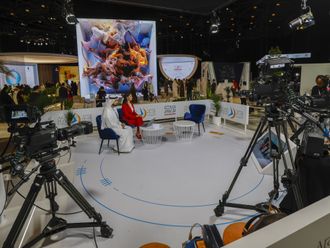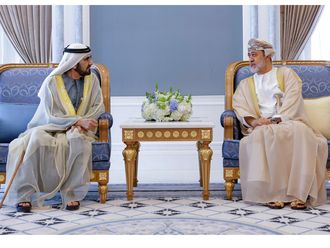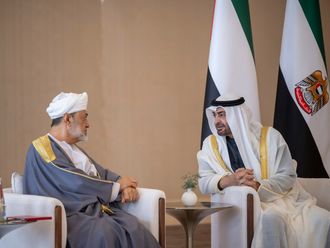Abu Dhabi: The recently announced merger between Abu Dhabi’s premier scientific institutes will help bridge gaps in research capabilities and output, the UAE Minister of Education (MoE) announced in the capital today (October 17).
The merger of Khalifa University, Masdar Institute of Science and Technology and the Petroleum Institute that was announced last Thursday (October 13) is part of an ongoing reform of the country’s educational system so that students will be able to thrive in a post-oil economy, Hussain Al Hammadi added.
“Research is still an area of weakness at our universities, but this merger will be a catalyst towards enhancing our capabilities. We expect the decision to pay off very soon, resulting in a university that can compete with other reputable international institutes of higher education,” he said.
“The unification will also put pressure on the university to enrol only the top students, thus enhancing educational standards. In time, we hope that other universities will also follow suit in implementing more rigorous standards,” he added.
The official was speaking at the Khalifa Award for Education International Conference, a two-day forum for educators to discuss the advances and challenges they encounter. The conference was inaugurated today (October 17) by Shaikh Nahyan Bin Mubarak Al Nahyan, UAE Minister for Culture and Knowledge Development.
This year has seen massive changes in the UAE’s educational system. In addition to the recent university merger, education at all levels is now governed by the MoE, from kindergarten to higher education. In the past, higher education was overseen by a separate ministry.
“This unification is important because it ensures that there is now continuity in our education system. What is taught in our schools is explored deeper at the university level, and the same culture is followed throughout,” Al Hammadi said.
As reported by Gulf News earlier, the MoE curriculum is also being reformed so that students are better equipped to gain admission in, and excel at, university. It will also complement the scrapping of the foundation year at UAE universities in September 2017, said Dr Arif Al Hammadi, director and executive vice president at Khalifa University. Till date, the foundation year has allowed high school graduates to pick up skills required at the university level, including language proficiency and mathematics ability.
For the first batch of high school students who will not be able to join a foundation year at university, Abu Dhabi emirate’s education sector regulator, the Abu Dhabi Ecducation Council (Adec), will offer bridging courses next summer, Dr Karima Al Mazroui, executive director for P-12 (kindergarten - Grade 12) at the Adec, told Gulf News.
“We also have a student support centre to help them. What we do know is that there is a need to ensure that our students are adept at keeping pace with today’s fast-moving world, and this is why the curriculum reform and higher educational standards are essential,” she added.
Dr Al Hammadi added that there is a great need to strengthen core learning at the school level.
“Only about 20 per cent of our students do not need to attend foundation year courses at present. Among these, just 40 per cent pass their first-year Math courses, and even they are not adept at Calculus and advanced Math,” he said.











